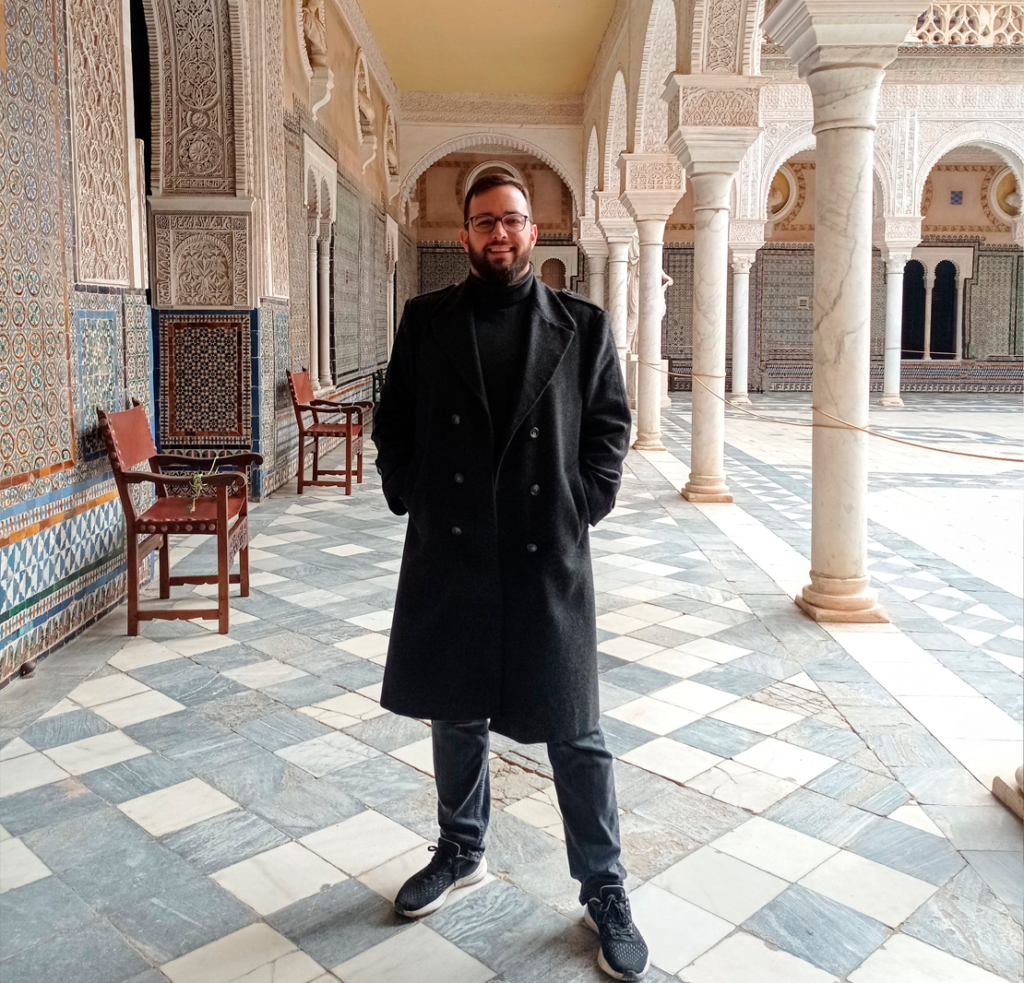Geometry, Frans Floris (1557)
Estudios sobre Europa,
el mundo mediterráneo
y su difusión atlántica
(HUM 680)
Alberto José Campillo Pardo

Alberto José Campillo Pardo holds a PhD in History from the Universidad de Sevilla. He obtained his B.A. in Political Science at the Universidad del Rosario, Colombia, and his M.A in History at the Universidad de los Andes, also in Colombia. His research focus has been in two main areas: the circulation of knowledge between Spain and New Granada in the Early Modern Period and the inquisitorial and governmental censorship in the Hispanic Monarchy. He has published several works on these subjects with high-impact publishers, such as Brill, Palgrave MacMillan, Comares, and the Universidad de Sevilla, including 2 books, 9 book chapters, and one article in a scientific journal. Between these publications, it is worth highlighting the monograph Censura, expurgo y control en la biblioteca colonial neogranadina (Bogota, 2017), published by the Editorial de la Universidad del Rosario, one of the most important academic publishers in Colombia and Latin America. The book is the first systematic study of inquisitorial censorship during the New Granadian colonial period, with a broad focus on expurgatory practices.
He graduated from his PhD in 2021, distinction “sobresaliente cum laude”, with the dissertation Comerciantes, censores y bibliotecas: circulacion del conocimiento entre España y Nueva Granada en el siglo XVIII, published in March 2023 in a coedition between the Universidad del Rosario and Universidad Javeriana from Colombia and the Universidad Autónoma del Estado de Mexico. It will be part of the series Biblioteca Latinoamericana de Culturas del libro and will be printed in both countries. This monograph represents one of the most relevant scientific contributions regarding the history of the cultural relations between the Enlightenment Europe and the XVIII century Americas, focusing on New Granada as a connector of both spaces. This work is supported by huge archival research from the funds of the Archivo de Indias in Sevilla, giving the book a great deal of originality and allowing it to revisit several common places and misconceptions on the matter.
After his PhD he was granted a Margarita Salas postdoctoral fellow, with funding from the “Next Generation” European program, at the Universidad de Sevilla. Due to the nature of this postdoctoral contract, which pursues academic mobility, Campillo has been working as a visiting researcher at the research group PAIDI HUM-680 Europa, el mundo mediterraneo y su difusión atlantica from the Universidad Pablo de Olavide, directed by Manuel Herrero Sánchez. His research project is titled José Celestino Mutis y la red de conocimiento científico en Nueva Granada, siglo XVIII, which analyzes the existence of a worldwide scientific knowledge circulation network in which Mutis had a preponderant participation. This seeks to prove that in the Early Modern Period, a first globalization happened, not only in economic terms but also in a cultural dimension. For this project, the methodology used is Social Network Analysis applied to History, allowing him to enhance the study of this network with technological, graphic, and geographic tools.
Among the activities of the Margarita Salas fellow, Campillo has been assigned 6 teaching credits, equivalent to 60 hours, in the courses of “Europa y el Mundo en la Edad Moderna”, “Historia Moderna” and the English taught course “Early Modern History”, in addition to supervising a TFG about slave traffic in New Granada. This adds to the 465 teaching hours that he has imparted in Colombia. On the other hand, he has also organized several conferences and seminars, as part of the PAIDI HUM-680 activities, including the conference cycle Europa, el Mundo y su difusión atIántica 2022, and the international conference Patrimonio escrito en circulation: redes culturales y comerciales en la Edad Moderna which took place in Bogota, Colombia, the 5th and 6th of December 2022, at the Universidad del Rosario. The latter had participants from different countries such as Colombia, USA, Spain, Austria, and Germany, and currently, he is editing a conference volume, given the high quality of the panels, with Natalia Maillard Álvarez (UPO), member of the PAIDI HUM-680 research group.
In addition to his main research as Margarita Salas fellow, Campillo has been consolidating an international academic network, that has resulted in the publication and edition of one collective volume, titled Libros que hay y los que se han hallado: bibliotecas religiosas en la América lbérica, along with Idalia Garcia (UNAM) and Ana Cecilia Montiel (UAEMex), published in 2023 by the Universidad del Rosario, and a monographic volume titled Contra la barbarie del hombre, el mayor bien de la cultura escrita: jesuitas en la América Española, published by the journal IHS. Antiguos Jesuitas en lberoamerica. In addition, he has two forthcoming chapters coauthored with Dr. Idalia Garcia (UNAM), titled Private libraries in New Spain: a project in progress. and Persecuted in the Spanish colonies, inquisitorial censorship, and the circulation of scientific books in New Spain and New Granada, published by Brill in 2023, in volumes of the collection “Library of the Written Word”. Also, he is the PI of the research group Patrimonio Cultural e Histórico (COL001187), at the Universidad del Rosario, Colombia.



